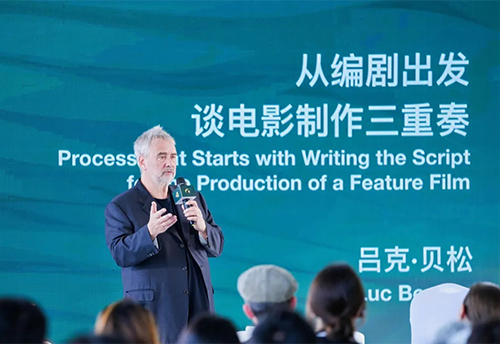- Golden Coconut International Jury Official Selection of Golden Coconut Award Award list Reviews of the Golden Coconut Award
- Line-up Screening by the Sea Around the Island
- HIIFF Talents Master Class Forum Carnival
- Competition Panorama Industry Events & Activities Information
- Cooperation Official Partners Contact Us
- Introduction Archives
- Film Submission Journalist Registration Visitor Registration Volunteers Join Masterclass Official Agenda Screening Schedule
Luc Besson Masterclass|Process That Starts with Writing the Script for the Production of a Feature Film
date:2024-12-10 source:Hainan Island International Film Festival
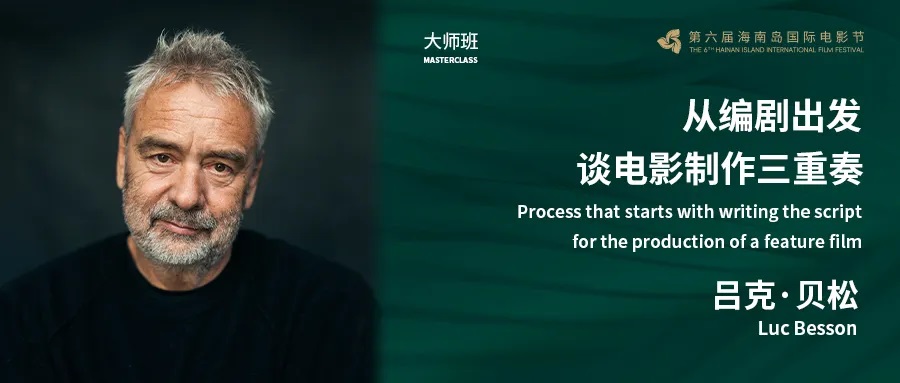
Film production is an imaginative and practical journey that combines various artistic elements, from the initial spark of a script to the meticulous refinement of directorial language, and finally to the strategic decisions that shape the entire production. Every step is crucial. As a renowned filmmaker on the global stage, Luc Besson has captivated audiences with his outstanding screenwriting abilities, unique directorial style, and keen production insight, presenting a series of classic works to film lovers worldwide.
On the morning of December 10th, the Masterclass with Luc Besson took place at the 6th Hainan Island International Film Festival at Phoenix Island in Sanya. Hosted by Yang Yang, Luc Besson engaged with the audience in a deep discussion on the three core dimensions of film production.
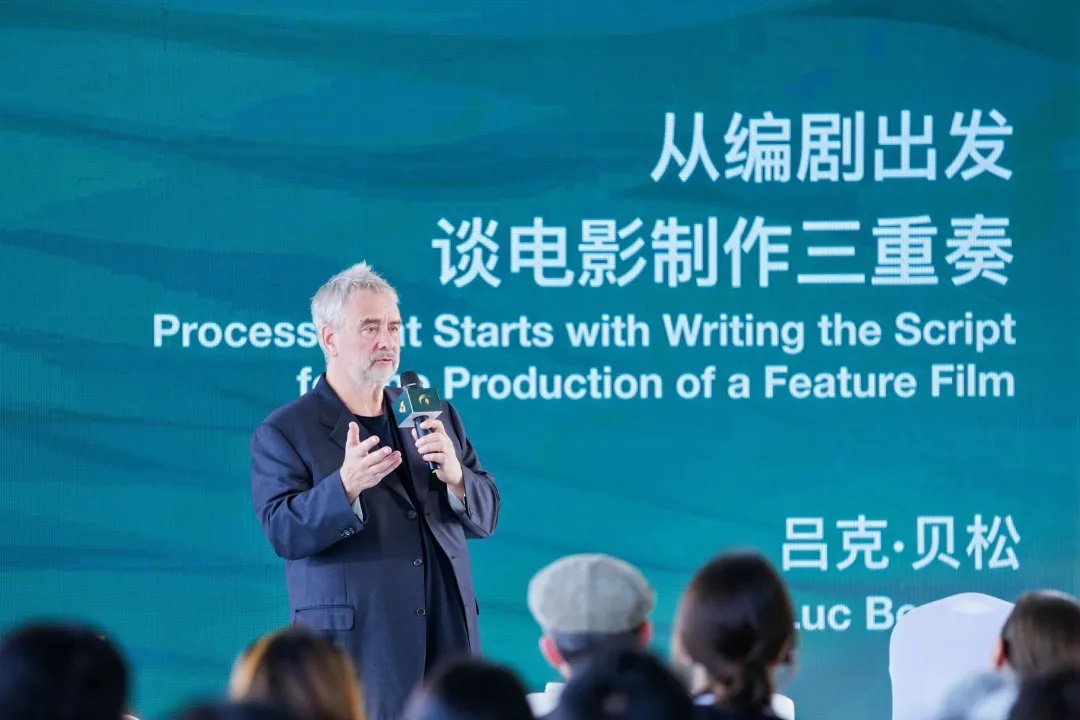
"Making films is about expressing myself."
The story is the heart of a film.
Luc Besson emphasized that the story is the core of a movie. When sharing his creative philosophy, he stated, "I never feel the need to please anyone. Making films is about expressing myself. The only thing I focus on is making films." Just like Picasso focused on his own feelings while painting, filmmakers should tell their own stories, stay true to their original intentions, and not overly concern themselves with the opinions of the audience.
“I started escaping reality at the age of 15 by taking a piece of paper and a pen. Anyone can write, but it's persistence that makes a great work." Luc Besson's journey in filmmaking began with his passionate love for cinema in his youth. This passion drove him to pursue screenwriting, and in the early years, he wrote constantly. Thousands of pages of manuscripts testify to his hard work and persistence, including many failures, but he never gave up. He understood that screenwriting is the foundation of film, and a great story is the key to attracting the audience. Just like The Fifth Element, which started with a 400-page draft and went through multiple revisions before it became a classic. He emphasized that creators need patience and perseverance, continually refining their work until the story is perfectly presented. He also pointed out that today’s filmmaking is influenced by capital, leading to a homogenization of styles, and he called for creators to take back control, saying, "We need to take this power back."
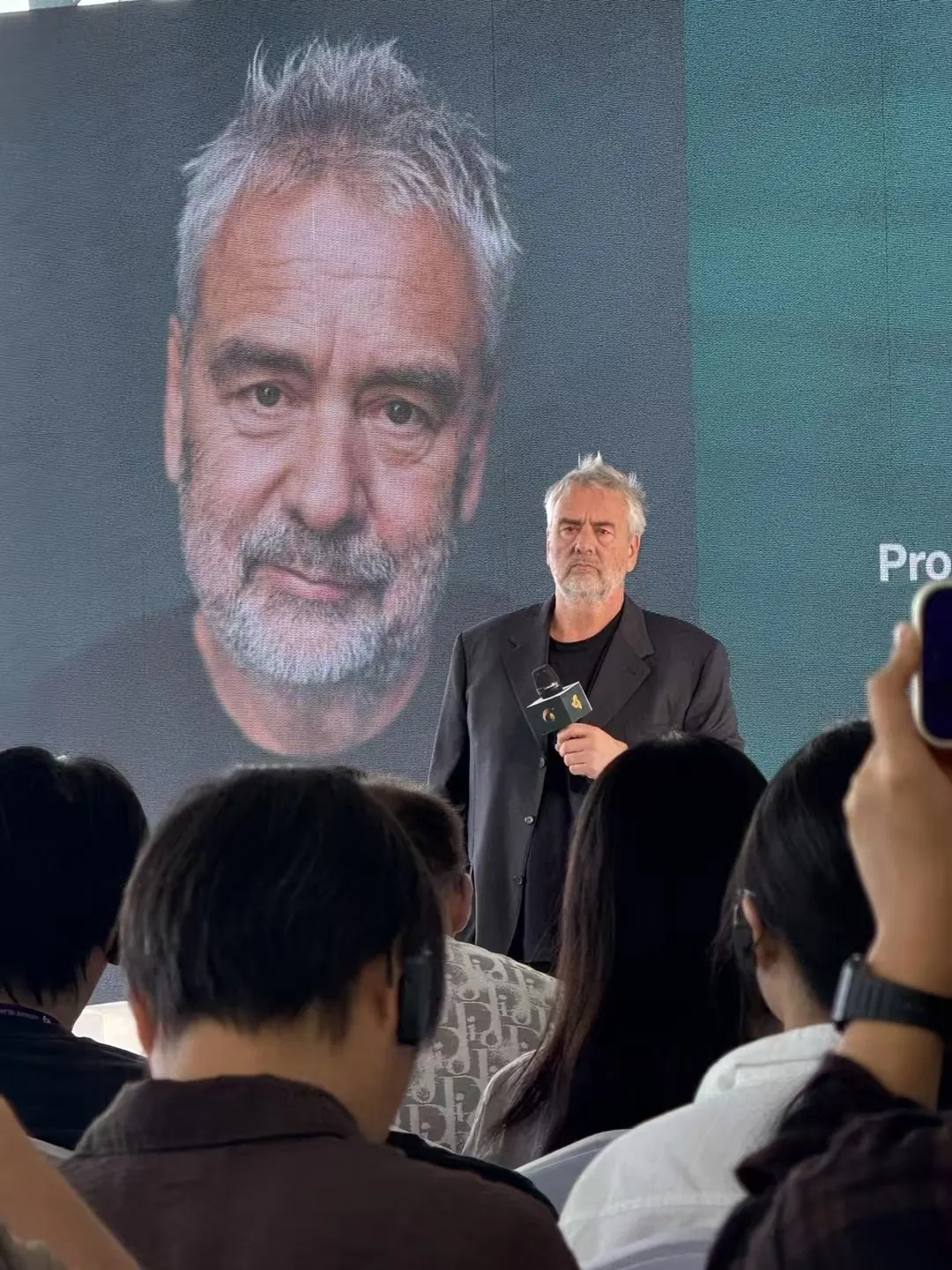
"Actors are the most important."
Valuing collaboration with actors
When discussing collaboration with actors, Luc Besson believes that actors are the most important element in a film. "Actors are the most important," he said. He explained that "every actor is different, and it takes time to build a friendship with them—eating together, chatting, and getting to know their life."
He used Lucy as an example to explain how he provides actors with background stories to help them get into character and build confidence in their performance. He also emphasized that directors need to create a sense of security for actors and build trust. He pointed out that actors should remain free and focused during their performance, and directors should give them enough space to express themselves, while also providing appropriate guidance at key moments to ensure that the performance complements the overall style of the story.

"Everyone brings something new to you."
Key elements of film production.
As a producer, Luc Besson has demonstrated extraordinary organizational and management skills. He deeply understands the importance of funding in film production and has unique approaches to raising funds. Reflecting on the creation of The Fifth Element, he broke from tradition by issuing a global call for creators to join the project, successfully raising the necessary funds. During the filming process, he strictly controlled the budget, carefully considering every expenditure to ensure it was reasonable and necessary. Of the more than 130 films he has been involved in, only once did a project exceed the budget. This meticulous attitude provided solid financial support for the success of his films.
Regarding team composition, he believes that a culturally diverse team has a clear advantage. Using his own diverse team as an example, he emphasized that the key to a film's appeal lies in collaboration. He said art has no borders, noting that cooperation among people from different countries sparks more creativity. He mentioned that his “last photography team included members from China, Japan, Italy, Australia, and other countries, and everyone brings something new to you." In The Fifth Element, he gave the costume designer complete freedom, saying, "I didn’t know what to say, and I wasn’t sure after a few days either. I said, 'It’s okay, do whatever you want,' because this can bring something new."
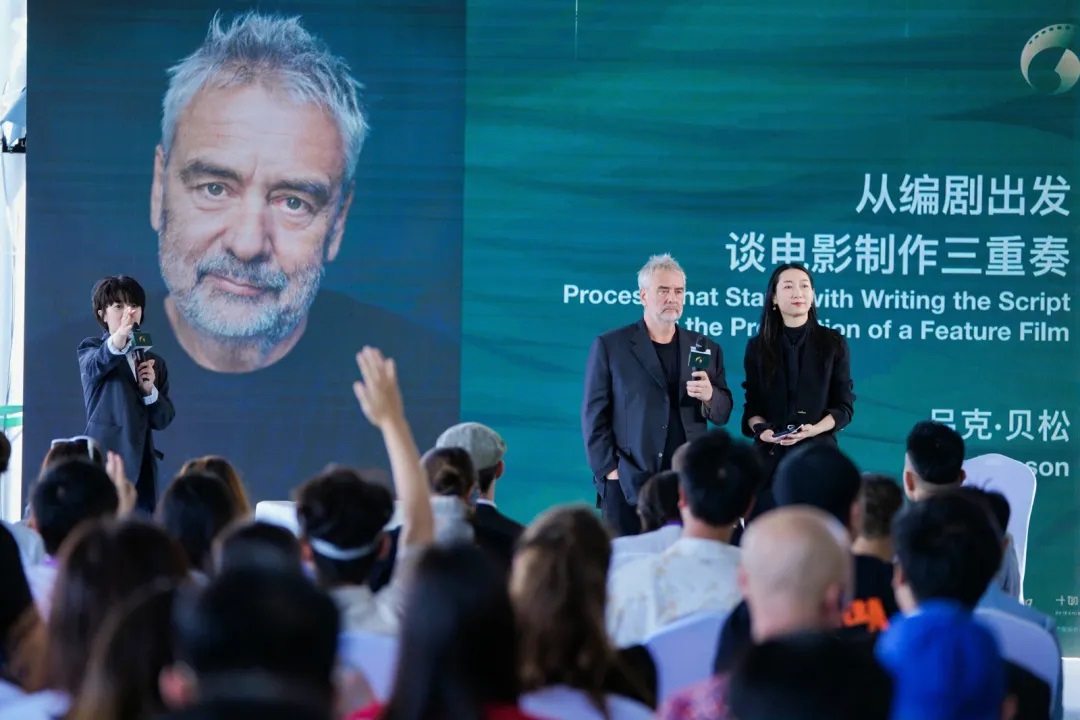
"Don't define films by fast food standards."
Diverse perspectives on the film industry
Regarding the future of short films, Luc Besson believes that young people now have better conditions for making short films, but content is key. He also pointed out that the audience's attention to film length and content will change, and he hopes creators will guide viewers to focus on the movie, reducing distractions from phones.
On remaking old films, he views classic films as memories and believes remakes often hold little significance if driven solely by commercial interests. He emphasized that films need innovation to provide freshness to the audience. "What we aim for is a five-star experience, not fast food. Our standards should be higher; don’t define films by fast food standards."
Talking about the impact of AIGC (Artificial Intelligence Generated Content) on the film industry, Luc Besson sees AIGC as a tool. While it can be useful in research and other areas, it is unlikely to create unique scripts. He encourages young directors to see it as a helpful tool but not a substitute for genuine creative work.

After the Q&A session, Luc Besson took time to take photos with the audience, and in the vibrant atmosphere, the masterclass came to a successful conclusion. His sharing provided valuable experiences and profound insights for filmmakers and enthusiasts, inspiring everyone to continue exploring and innovating, injecting a steady stream of energy into the ongoing development of cinematic art.

Copyright © www.hiiff.net All Rights Reserved.

